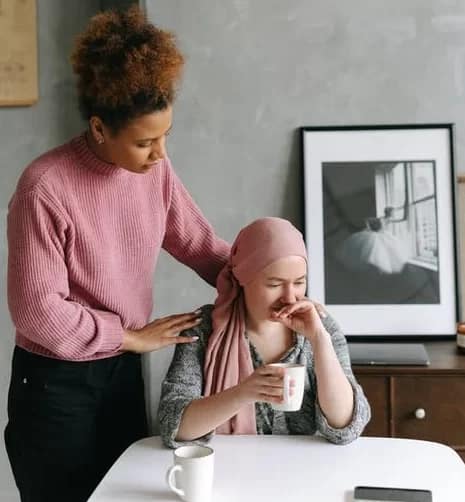1.) Give nonjudgmental Emotional Support. When you give nonjudgmental support, you create a safe and comfortable environment for the bereaved to begin grief work. The grieving may want to laugh, cry, scream or remain silent; these expressions of emotions are a step towards future healing. It is imperative that you provide the bereaved the freedom to react to death in their unique way.
2.) Help the bereaved confirm the reality. When supporting those that have lost a loved one, do not deny or pretend that the death has not occurred. Use words like “dead” instead of “gone” to activate the reality of death to reduce the instances of death denial and provides a safer environment for the bereaved to adjust.
3.) When supporting the bereaved, we may feel that we have the answers and stages of grief. No two deaths are alike. Play a more supportive role rather than a controlling role. Accept them where they are. When they are ready, refer them to a professional counselor to work through any complicated or unresolved grief.
4.) Listen.
5.) Serve. When someone is grieving, we cannot take away the death and feelings, but we can support them by making this grief period slightly easier. As a supportive friend, this is an excellent time for you to visit, provide meals, care for their dependant family members, run errands, and asks for practical ways to ease their time as they grieve.
6.) Memorialize the decedent’s life. The bereaved may subconsciously need people to confirm that life, and now death has occurred; they may want assurance that their loved ones’ lives matter and their death acknowledged. You can do this by sharing stories asking questions, and recognizing the existence and importance of their life.
7.) Give Assurance. The bereaved may feel that the reactions and feelings towards the death are unfounded, extreme, subdued, or even unnatural. Assure them that they are entitled to their emotions; relationships are unique, and so is the grief. Do not compare their loss to yours or any other. Statements like “my friend met another woman after his wife died,” “you will have another child,” “She was so old and frail,” “He is in a better place” are not helpful.
Supporter’s Pledge
Today I will be gentle with myself. I take time to engage with mortality. I will be ready to support others and make informed decisions when faced with death.



